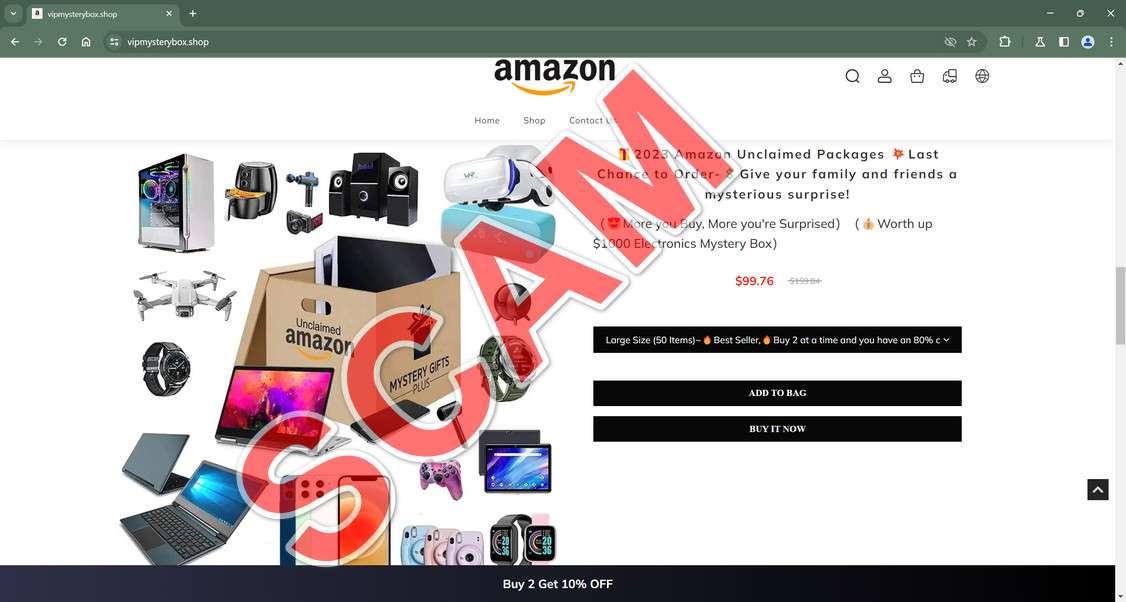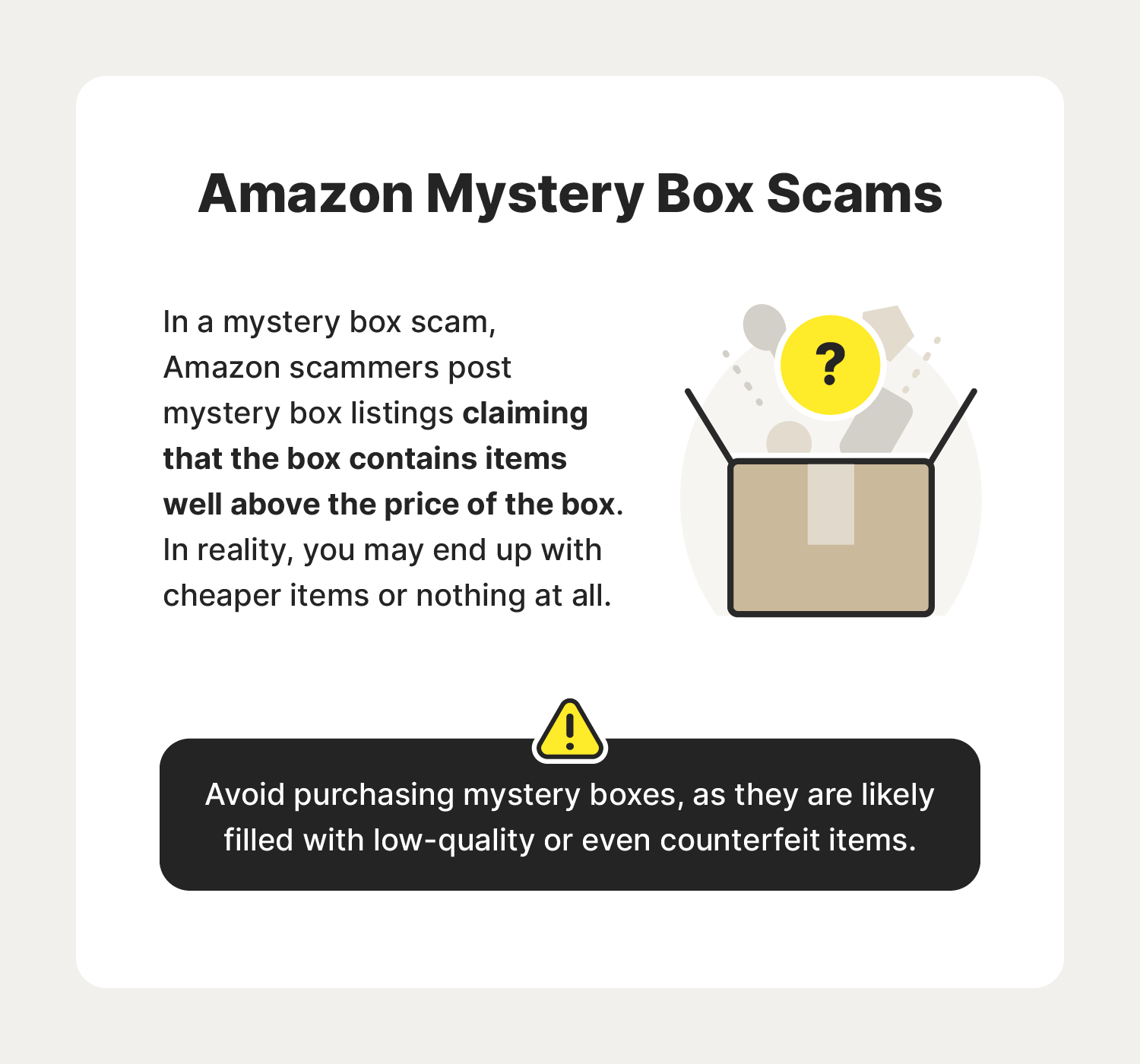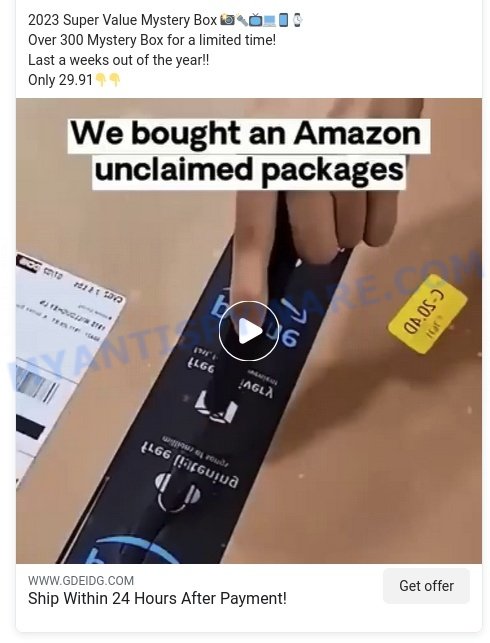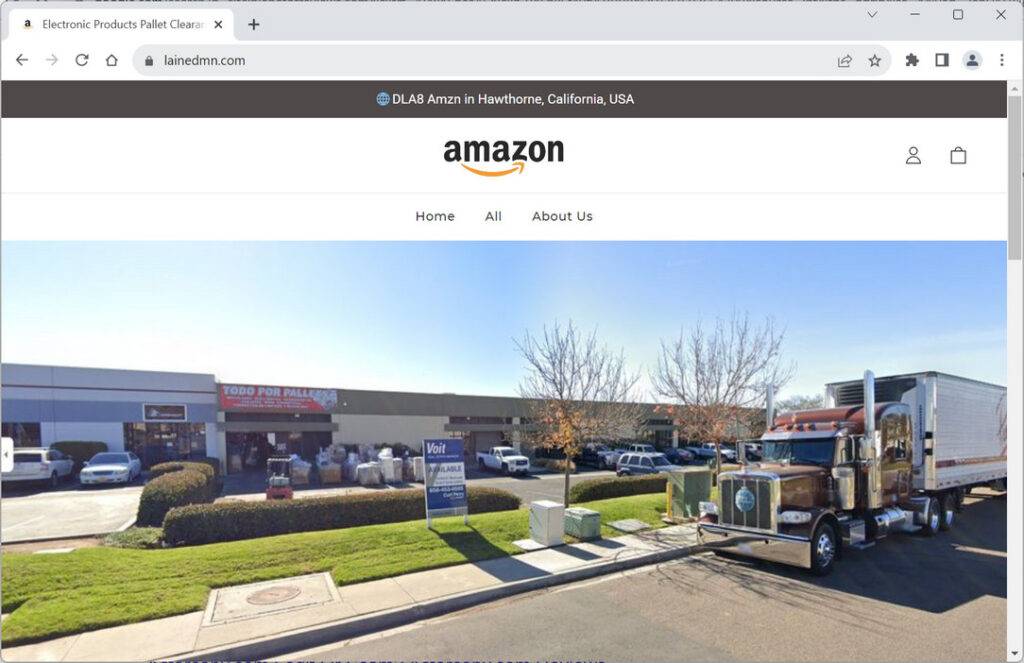Is The Amazon Mystery Box Legit

The allure of the unknown, coupled with the promise of a bargain, has fueled the popularity of Amazon Mystery Boxes. These boxes, often advertised online, claim to contain returned or unsold merchandise from the e-commerce giant, sold at significantly discounted prices. But the question remains: are these mystery boxes legitimate, or are buyers simply gambling their money away?
This article delves into the world of Amazon Mystery Boxes, examining their origins, the risks and potential rewards involved, and expert opinions on whether they represent a genuine opportunity or a clever scam. We aim to provide readers with a comprehensive understanding of this online phenomenon, empowering them to make informed decisions.
The Rise of the Mystery Box Trend
The concept of mystery boxes isn't new. They have existed in various forms for decades, often containing collectibles or promotional items. The internet, however, has significantly amplified their reach, with numerous vendors now offering boxes containing everything from electronics to clothing.
Amazon, as the world's largest online marketplace, is naturally a focal point for this trend. While Amazon itself doesn't officially sell "mystery boxes," third-party sellers often market boxes containing purported Amazon returns or overstock.
Understanding the Amazon Returns Process
To understand the mystery box phenomenon, it's crucial to grasp Amazon's return process. Amazon has a liberal return policy, allowing customers to return most items within a specified timeframe. This generates a massive volume of returned merchandise.
These returned items are often categorized based on their condition. Some are resold as "used - like new," while others, deemed unsellable in their original condition, may be liquidated to third-party companies. These liquidators, in turn, may create and sell mystery boxes.
The Mystery Box Marketplace: Who's Selling What?
The mystery box marketplace is diverse and often unregulated. Sellers range from established liquidation companies to individual resellers operating on platforms like eBay, Craigslist, and even social media.
The contents of these boxes are highly variable. Some may contain genuinely valuable items, while others may be filled with low-value goods or even damaged products. The lack of transparency is a key characteristic of this market.
The Risks and Rewards: A Gamble on the Unknown
Buying an Amazon Mystery Box is essentially a gamble. The potential reward is the possibility of acquiring valuable items at a fraction of their original cost. Success stories circulate online, fueling the allure of these boxes.
However, the risks are significant. The contents are unknown, and there's no guarantee of receiving items that meet expectations or even cover the cost of the box. Many buyers report receiving broken, outdated, or unwanted items.
Common Complaints:
Numerous online forums and review sites document complaints from disappointed mystery box buyers. These complaints often center around:
- Receiving items of low value or in poor condition.
- The box contents not matching the advertised description.
- Difficulty contacting the seller for returns or refunds.
Expert Opinions: Proceed with Caution
Consumer protection experts advise caution when considering purchasing Amazon Mystery Boxes. The lack of regulation and transparency makes it difficult to assess the legitimacy of sellers and the true value of the boxes.
"It's a high-risk, low-reward proposition," says Jane Doe, a consumer advocate at the Consumer Protection Agency. "Buyers should be prepared to lose their money and avoid sellers who make unrealistic promises."
Tech analyst John Smith adds, "While there might be legitimate liquidation companies selling these boxes, it's crucial to do your research. Look for reviews, check the seller's reputation, and understand the return policy before making a purchase."
The Legal Landscape: A Gray Area
The legality of selling Amazon Mystery Boxes is a complex issue. While it's generally legal to resell liquidated merchandise, sellers must accurately represent the contents of their boxes and avoid deceptive marketing practices.
Amazon's terms of service prohibit the unauthorized use of its brand. Sellers who falsely imply an affiliation with Amazon or misrepresent the origin of their products may face legal action from Amazon.
Human Interest: The Thrill of the Unboxing
Despite the risks, the appeal of Amazon Mystery Boxes persists, driven in part by the thrill of the "unboxing" experience. The anticipation of discovering what lies inside creates a sense of excitement and novelty.
For some, the boxes represent a form of entertainment, akin to gambling. Others view them as a potential source of cheap goods or a way to acquire items they might not otherwise purchase.
Conclusion: Buyer Beware
Amazon Mystery Boxes can be tempting, but they come with significant risks. While the possibility of finding a valuable item exists, the odds are often stacked against the buyer.
Potential buyers should exercise extreme caution, conduct thorough research, and be prepared to lose their investment. Before purchasing a mystery box, consider if the risk is worth the potential reward, and always prioritize reputable sellers with transparent practices.
Ultimately, the decision to purchase an Amazon Mystery Box is a personal one. However, informed decision-making is crucial in navigating this unpredictable and often misleading marketplace. Buyer beware remains the most important advice.




![Is The Amazon Mystery Box Legit How To Buy Amazon Mystery Box [Step Guide] - Cherry Picks](https://www.cherrypicksreviews.com/rails/active_storage/representations/redirect/eyJfcmFpbHMiOnsibWVzc2FnZSI6IkJBaHBBcUVyIiwiZXhwIjpudWxsLCJwdXIiOiJibG9iX2lkIn19--795511b51257fea8594400ce794681333a8e19ab/eyJfcmFpbHMiOnsibWVzc2FnZSI6IkJBaDdCem9MWm05eWJXRjBTU0lJYW5CbkJqb0dSVlE2QzNKbGMybDZaVWtpRHpFMk1EQjRNVFl3TUQ0R093WlUiLCJleHAiOm51bGwsInB1ciI6InZhcmlhdGlvbiJ9fQ==--d2458723d1660d4c788aec614604ecbbc0e913a0/Buy Amazon Mystery Box.jpg)













